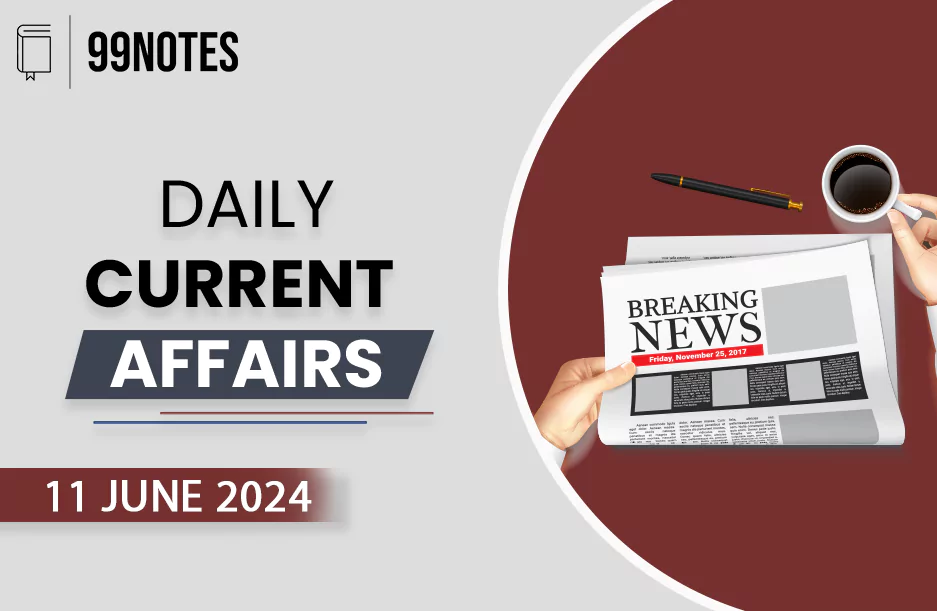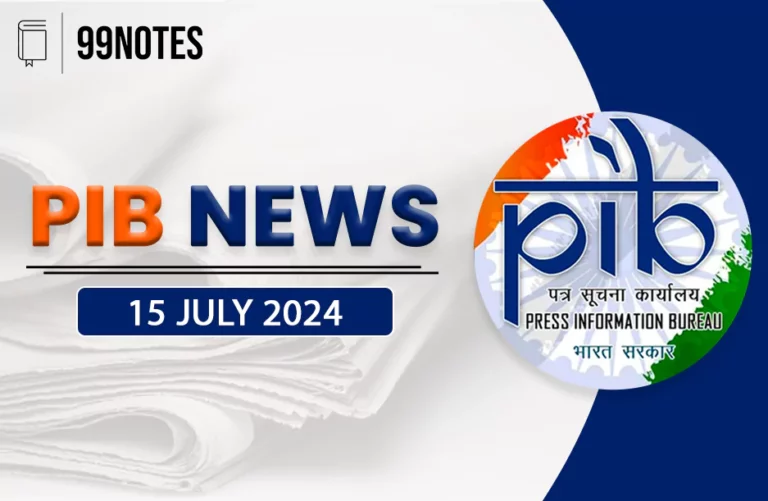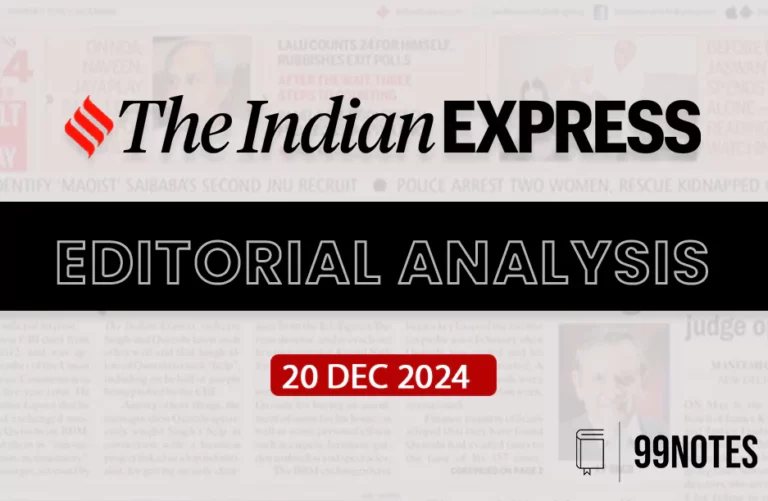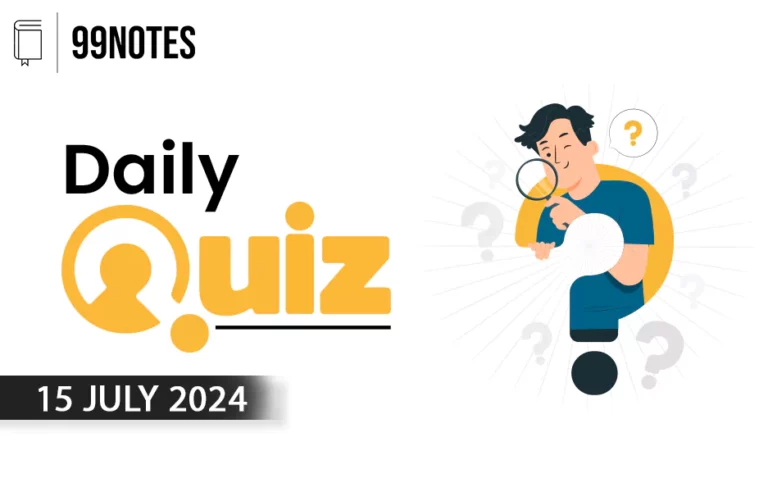11 June 2024 : Daily Current Affairs
1. Understand the Indian Ocean and you’ll understand much about earth
| Topic: GS1 – Geography GS3 – Environment |
| Context |
|
Analysis of the news:
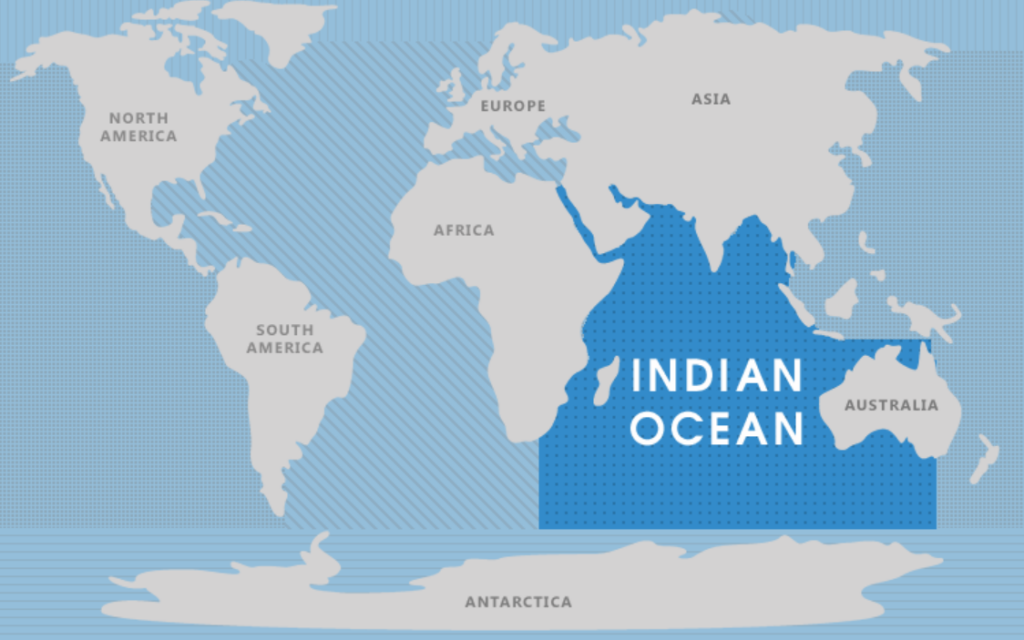
- The Indian Ocean, often overlooked, is gaining attention due to its rapid warming and significant influence on global ocean responses to climate change.
- Home to dramatic monsoon winds, the Indian Ocean plays a vital role in providing moisture to over a billion people, sustaining fisheries, and supporting agriculture.
- The region experiences scorching heat and pre-monsoon cyclones, posing threats to coastal communities and ecosystems.
- Unique oceanic configurations, including connections to the Pacific and Southern Oceans, impact circulation, temperature, and salinity, influencing global heat uptake.
- The Indian Ocean, heavily influenced by the Pacific through atmospheric circulation, is warming rapidly, with implications for heatwaves, extreme rain, marine heatwaves, and fisheries.
- Its warming affects wind circulation, modulating global warming rates and oceanic heat sinking, contributing to the modulation of global climate.
- Geological history suggests the Indian Ocean’s reconfiguration played a role in human evolution, affecting ancestral habitats and potentially driving bipedal movement.
- Understanding the Indian Ocean’s dynamics and history is crucial for climate research and human evolution studies, underscoring its significance on World Oceans Day.
| Significance of Indian Ocean from global perspective: |
|
|
Practice Question: Discuss the role of the Indian Ocean in global climate dynamics, considering its rapid warming, influence on weather patterns, and potential implications for human evolution. How does its unique configuration impact regional and global climate phenomena? (250 Words /15 marks) |
(Source – The Hindu, International Edition – Page No. – 7)
2. On Special Category Status for Andhra
| Topic: GS2 – Indian Polity GS2 – Governance |
| Context |
| The demand for Special Category Status (SCS) for Andhra Pradesh has resurfaced after the completion of the 2024 Lok Sabha elections.Despite previous promises and compromises, the state’s financial challenges and stalled development projects have reignited calls for SCS. |
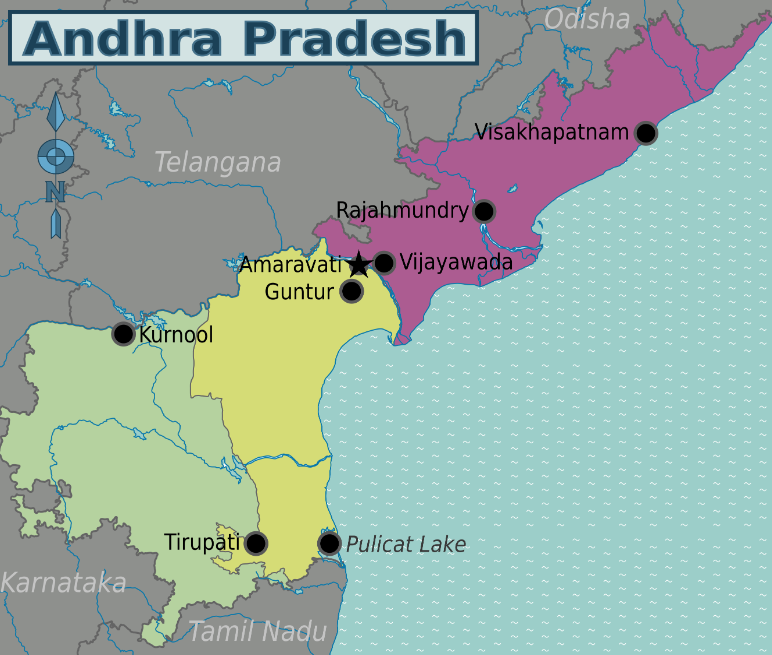
Introduction:
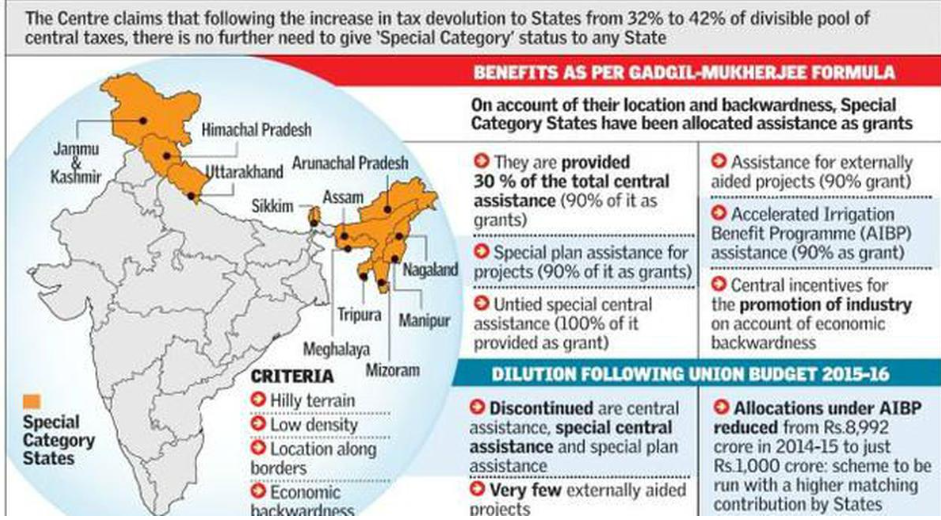
- The Andhra Pradesh Reorganisation Act, 2014, led to the bifurcation of unified Andhra Pradesh into two states, without specifying a Special Category Status (SCS) for Andhra Pradesh.
- The issue gained attention after the 2024 Lok Sabha elections, sparking renewed debates and demands for SCS.
History of Special Category Status (SCS) Promise:
- Former Prime Minister Manmohan Singh promised SCS for Andhra Pradesh for five years during a debate in the Rajya Sabha in February 2014, supported by BJP leader M. Venkaiah Naidu.
- After Narendra Modi assumed office, the Special Category Status (SCS) promise was sidelined, citing reasons such as Andhra Pradesh not meeting the criteria and the dissolution of the Planning Commission.
Qualification for SCS:
- Special Category Status (SCS) was initially devised to aid states facing socio-economic challenges and geographical disadvantages, such as hilly or tribal regions.
- Qualification criteria included majority tribal population, low population density, proximity to international borders, socio-economic and industrial backwardness, and inadequate state finances.
- Currently, states with Special Category Status (SCS) include Arunachal Pradesh, Assam, Himachal Pradesh, Jammu and Kashmir, Manipur, Meghalaya, Mizoram, Nagaland, Sikkim, Tripura, and Uttarakhand.
Special Package Offer:
- In lieu of Special Category Status (SCS), the Union Government offered Andhra Pradesh a special package (SP), accepted by then Chief Minister Chandrababu Naidu.
- The special package included recognition of the Polavaram irrigation project as a national project with full funding, tax concessions, and special assistance.
- Naidu’s acceptance of the SP faced criticism, with opponents labeling it a betrayal.
Change in Political Dynamics:
- In 2018, Naidu withdrew from the NDA alliance and moved a failed no-confidence motion.
- Critics accused Naidu of succumbing to opposition pressure and termed his shift from Special Category Status (SCS) to special package as a betrayal of the state’s interests.
SCS Reconsideration:
- N.K. Singh, Chairman of the 15th Finance Commission, clarified that the 14th Finance Commission didn’t rule out Special Category Status (SCS), leaving the decision to the Union Government.
- Instead of Special Category Status (SCS), the 14th Finance Commission increased tax devolution to 42% and introduced revenue deficit grants, which Andhra Pradesh had received.
Resurgence of SCS Demand:
- Andhra Pradesh has faced a revenue deficit since bifurcation, with mounting debts and stalled development projects.
- Public hopes for Special Category Status (SCS) revival have grown, particularly with the TDP rejoining the NDA alliance, where Andhra Pradesh MPs hold influence due to the coalition’s slim majority.
Conclusion:
- The issue of Special Category Status for Andhra Pradesh has resurfaced due to its ongoing financial challenges and stalled development projects.
- Despite initial promises and subsequent compromises, the demand for Special Category Status (SCS) persists, with renewed hopes in the changed political landscape.
| Practice Question: Discuss the revival of demands for Special Category Status (SCS) for Andhra Pradesh, considering its historical context and implications for regional development. Evaluate the challenges and prospects of addressing the state’s financial woes through the Special Category Status (SCS) framework. (250 Words /15 marks) |
(Source – The Hindu, International Edition – Page No. – 10)
3. India-Maldives Relations: Navigating Strategic Shifts Under President Muizzu’s Leadership
| Topic: GS2 – International Relations – India and It’s neighbourhood |
| Context: |
|
Analysis of News:
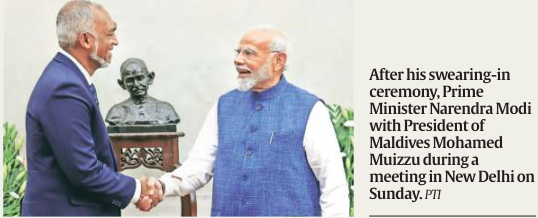
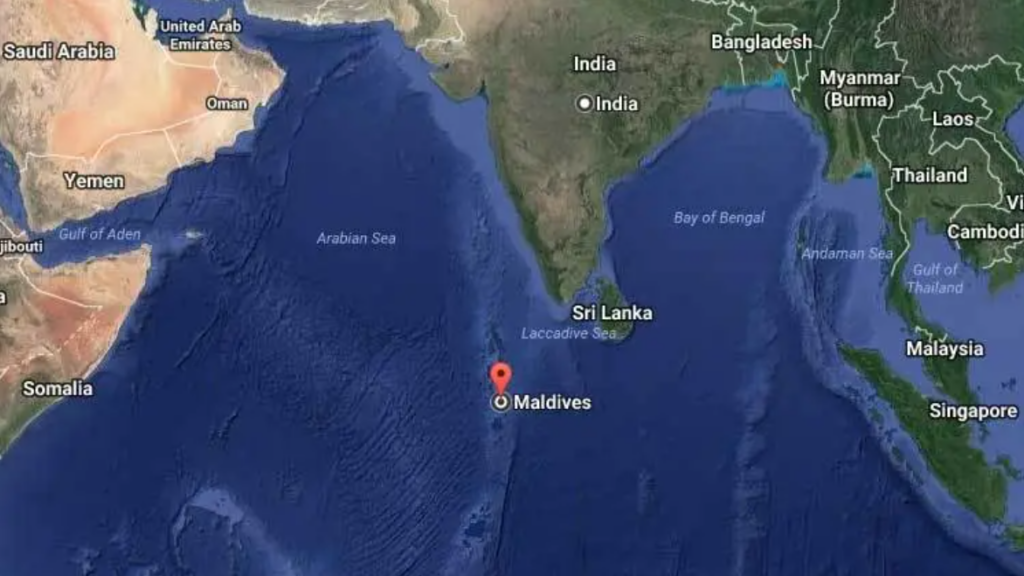
The ‘India Out’ Candidate:
- Muizzu rose to power on November 17 last year, advocating an ‘India Out’ campaign. This movement, initiated by the Maldives opposition in 2020, protested against then-President Ibrahim Solih’s perceived pro-India policies and alleged Indian military presence, which both Solih and India denied.
- Muizzu vowed during his campaign to expel “foreign soldiers,” and promptly after taking office, he demanded the withdrawal of Indian military personnel.
- Consequently, by May, Indian soldiers operating and maintaining gifted helicopters and aircraft were replaced by civilians.
Pro-China Tilt:
- Following in the footsteps of former President Abdulla Yameen Abdul Gayoom, Muizzu has realigned the Maldives more closely with China, India’s geopolitical rival in the Indian Ocean.
- In a significant departure from tradition, Muizzu chose Beijing over New Delhi for his first foreign visit, meeting President Xi Jinping and signing 20 agreements in areas such as tourism, social housing, and e-commerce.
- In March, the Maldives signed its first military deal with China for non-lethal equipment and training, further solidifying Chinese influence at the expense of India.
- This growing pro-China sentiment among the Maldivian political class reflects a culmination of increasing Chinese involvement over recent decades.
Historical Relationship:
- For India, the Maldives is a strategic ally, crucial for securing its maritime boundaries and monitoring the Indian Ocean region amidst China’s aggressive moves.
- The Maldives’ proximity to Lakshadweep and the Indian west coast, along with vital commercial sea lanes, underscores its importance. Despite Muizzu’s anti-India stance, the Maldives heavily relies on India for essential imports, including food, medicines, and search-and-rescue aircraft.
- India has consistently aided the Maldives during crises, from the 2004 tsunami to the 2014 water crisis and the Covid-19 pandemic.
- The Indian Army also thwarted a coup attempt in Malé in 1988, an operation still respected across Maldivian political lines.
Chance of a Fresh Start:
- Muizzu’s visit to India during a period of strained relations signals a possible reset. Recent months have seen efforts to mend ties, including India approving the highest-ever export quotas for essential commodities to the Maldives for 2024-25.
- In May, Maldives Foreign Minister Moosa Zameer met with India’s External Affairs Minister S. Jaishankar in New Delhi, marking the first high-level interaction since Muizzu assumed office.
- Their extensive discussions on bilateral relations and regional security indicate a willingness to collaborate.
- Jaishankar’s optimistic remarks after meeting Muizzu reflect the potential for closer cooperation between the two nations.
Conclusion:
- The India-Maldives relationship, shaped by historical ties and strategic imperatives, faces new challenges and opportunities under Muizzu’s presidency.
- While Muizzu’s pro-China stance and the ‘India Out’ campaign have strained relations, recent diplomatic engagements suggest a cautious optimism for resetting ties.
- The future of India-Maldives relations will depend on navigating these complex dynamics, balancing strategic interests with mutual dependencies.
| PYQ: Discuss the political developments in Maldives in the last two years. Should they be of any cause of concern to India? (200 words/10m) (UPSC CSE (M) GS-2 2013) |
| Practice Question: Analyze the current state of India-Maldives relations under President Mohamed Muizzu’s leadership. Discuss the implications of Muizzu’s ‘India Out’ stance and pro-China tilt on bilateral ties, and evaluate the potential for a reset in the relationship through recent diplomatic engagements. (250 words/15 m) |
(Source: Indian Express; Section: Explained; Page: 14)
4. The Crucial Role of the Lok Sabha Speaker: Powers, Responsibilities, and Political Significance
| Topic: GS2 – Polity |
| Context: |
|
Analysis of News:
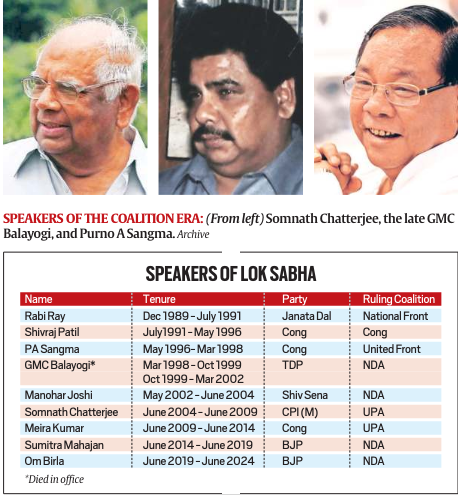
Powers of the Speaker:
- Conducting the House: The Speaker oversees the conduct of the House, deciding the schedule in consultation with the Leader of the House. Members need the Speaker’s permission to ask questions or discuss matters, ensuring orderly proceedings. The Speaker’s impartiality is essential for maintaining a balance, allowing the Opposition to voice their concerns effectively.
- Questions and Records: The Speaker determines the admissibility of questions raised by members and manages the publication of House proceedings. They have the authority to expunge unparliamentary remarks from the records, which can include critical comments against the ruling party.
- Voice Votes and Division: The Speaker can pass a Bill through a voice vote, especially if the treasury benches are thin. They can override a request for division if deemed unnecessary, though division voting is important for recording individual member’s votes, including dissent.
- No-Confidence Motion: The Speaker’s role is crucial during a no-confidence motion against the government. For example, in 2018, then Speaker Sumitra Mahajan managed the motion against the government after several adjournments.
- Casting Vote: The Speaker has a casting vote in case of a tie, as per Article 100 of the Constitution. Traditionally, the Speaker votes in favor of the government.
Disqualification of Members:
- The Speaker’s power under the Tenth Schedule, or the anti-defection law, is significant for the Opposition. This law, introduced by the Fifty-Second Amendment Act of 1985, allows the Speaker to disqualify members who defect from their party.
- The Supreme Court, in the Kihoto Hollohan case (1992), upheld this power, subject to judicial review of the final order. Timely disqualification can impact the majority in the House, while delays can undermine the Tenth Schedule.
- In 2023, the Supreme Court directed the Maharashtra Assembly Speaker to expedite disqualification proceedings in the Shiv Sena faction dispute. Similarly, in 2020, the Court ruled that disqualification pleas should be decided within three months, except under extraordinary circumstances.
Significance of the Speaker’s Post:
- For the BJP, its allies, and the opposition, the Speaker’s post is crucial. The Speaker’s decisions influence the conduct of the House, manage crucial parliamentary procedures, and ensure the integrity of legislative processes.
- With the 18th Lok Sabha set to meet, the contest for the Speaker’s position, involving key allies like TDP and JD(U), underscores the strategic importance of this role in shaping legislative outcomes and maintaining democratic balance.
| Practice Question: Discuss the powers, responsibilities, and political significance of the Speaker of the Lok Sabha in India’s parliamentary democracy. (250 words/15 m) |
(Source: Indian Express; Section: Explained; Page: 14)
5. Tamil Nadu Chief Minister MK Stalin Criticizes NEET Amid Controversial Results; Calls for Reforms Based on Rajan Committee Findings
| Topic: GS2 – Social Justice – Education |
| Context: |
|
Analysis of News:
Controversy Surrounding NEET-UG Results:
The NEET-UG results have been questioned for various reasons:
- Unusually High Number of Top Scorers: This year, 67 candidates achieved the top rank with the maximum possible score, compared to a maximum of three in previous years.
- Grace Marks: Approximately 1,500 candidates received grace marks due to “loss of time,” with 44 of the top scorers being awarded grace marks for errors in a Class 12 NCERT textbook.
- Review and Legal Action: The National Testing Agency (NTA) and the Education Ministry have set up a committee to review the results. There have been calls for a Supreme Court-supervised probe and demands from Maharashtra’s Medical Education Minister to cancel the results. Some candidates have taken the matter to the High Courts.
Findings of the Rajan Committee:
Chief Minister Stalin referenced the findings of a High-Level Committee headed by Justice AK Rajan, which analyzed the impact of NEET on admissions:
- Impact on Rural and Tamil Medium Students: The committee found a significant decrease in the number of students from rural areas, Tamil medium schools, and lower-income families securing medical college admissions post-NEET.
- Language Disparity: English-medium students, who already had a higher share of seats pre-NEET, saw their share increase significantly, while Tamil-medium students’ share decreased drastically.
- Rural vs Urban Disparity: There was a notable decline in seats secured by students from rural areas, while urban students saw an increase in their share of admissions.
- Income Disparity: The share of students from higher-income families increased, while that of students from lower-income families decreased.
- Board Disparity: CBSE students gained a significant advantage over Tamil Nadu state board students, with the share of state board students falling and that of CBSE students rising markedly.
- Merit and Coaching Influence: The committee argued that NEET scores do not necessarily reflect student merit better than HSC scores. It also highlighted the growing influence of coaching centers, with 99% of successful candidates in 2019-20 having received coaching.
Committee’s Recommendations:
The Rajan Committee concluded that NEET has negatively impacted the diverse representation in medical education and favored affluent sections of society. It recommended:
- Eliminating NEET: The state should take steps to remove NEET from the admission process.
- Using HSC Scores: Admissions should be based on normalized HSC scores to ensure equality across boards.
- Adversity Score: A framework to re-profile scores considering socio-economic and demographic challenges should be implemented.
Legislative Actions and Future Steps:
- Following the committee’s recommendations, the Tamil Nadu Legislative Assembly unanimously passed a bill seeking exemption from NEET.
- This bill, passed in 2021, was returned by the Governor in 2022 but was re-passed by the Assembly the same year.
- It proposes admissions to undergraduate medical, dental, and homeopathy courses based on Class 12 marks. However, the bill is still awaiting Presidential assent.
| Practice Question: Examine the impact of the NEET-UG examination on medical admissions in Tamil Nadu, with reference to the findings of the Rajan Committee. Discuss the implications for rural, lower-income, and Tamil medium students, and evaluate the recommendations made by the committee to address these issues. (250 words/15 m) |
(Source: Indian Express; Section: Explained; Page: 14)
Prelims Facts
1. PM Kisan Nidhi instalment released to 9.3-cr. farmers
| Context |
|
PM Kisan Samman Nidhi Scheme:
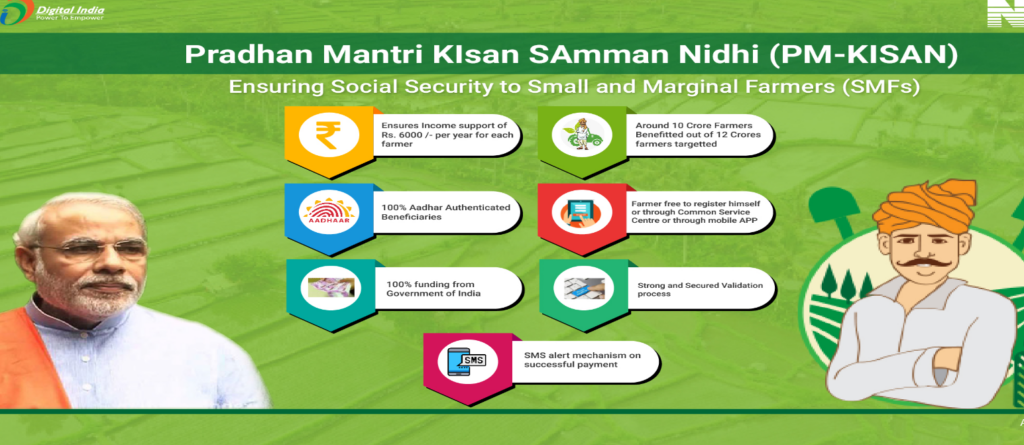
- PM-KISAN is a central sector scheme launched on February 24, 2019, to supplement the financial needs of landholding farmers in India.
- It provides a financial benefit of Rs 6000 per year in three equal instalments, transferred directly into the bank accounts of farmers’ families through the Direct Benefit Transfer (DBT) mode.
- Initially meant for small and marginal farmers with land holding up to 2 hectares, the scheme was extended to cover all landholding farmers from June 1, 2019. More than 11.78 crore farmers have benefited from the scheme.
- Technological and process advancements have been implemented to facilitate maximum beneficiary participation.
- Self-registration mechanisms via mobile apps, portals, and Common Service Centers have simplified beneficiary enrollment.
- Enhanced recovery mechanisms ensure smooth and transparent recovery processes for ineligible beneficiaries.
- Grievance redressal mechanisms, including a centralised helpdesk and project management unit, address beneficiaries’ issues effectively.
- Physical verification modules ensure scheme authenticity, with mandatory annual verification of 5% of beneficiaries.
- Income tax verification and Aadhar authentication ensure scheme integrity and transparency.
(Source – The Hindu, International Edition – Page No. – 5)
2. ISRO releases images of sun captured by Aditya-L1 during May
| Context |
|

India’s Aditya-L1 solar mission:
- Aditya-L1 is India’s first solar mission, launched by ISRO to study the Sun’s outermost layer, the corona, and the chromosphere.
- The mission aims to enhance understanding of the fundamental processes that heat the solar corona and accelerate the solar wind.
- It was named “Aditya” meaning “sun” in Sanskrit, highlighting its focus on solar observations.
- The spacecraft was launched on September 2, 2023, aboard a Polar Satellite Launch Vehicle (PSLV) from Sriharikota.
- Aditya-L1 carries multiple payloads, including remote sensing and in-situ instruments, to observe various aspects of the Sun’s atmosphere and its impact on space weather.
- Remote sensing payloads like SUIT and VELC capture images and spectra of the solar corona, while in-situ payloads like ASPEX and MAG measure solar wind properties.
- The mission’s objectives include studying solar flares, coronal mass ejections (CMEs), and space weather phenomena to improve forecasting capabilities and understand solar variability.
- Aditya-L1 will operate in a halo orbit around the Sun-Earth Lagrange point L1, approximately 1.5 million kilometres from Earth.
(Source – The Hindu, International Edition – Page No. – 6)
3. Swiss-Hosted Ukraine Peace Summit Draws Nearly 90 Countries, Excludes Russia
| Context: |
|
Analysis of News:

Aim of the Summit:
- Switzerland’s President Viola Amherd emphasized that the summit aims to chart a path towards possible peace in Ukraine, nearly 28 months after the invasion by Russian forces.
- The focus is on humanitarian aid and fostering peace through dialogue, rather than propaganda.

